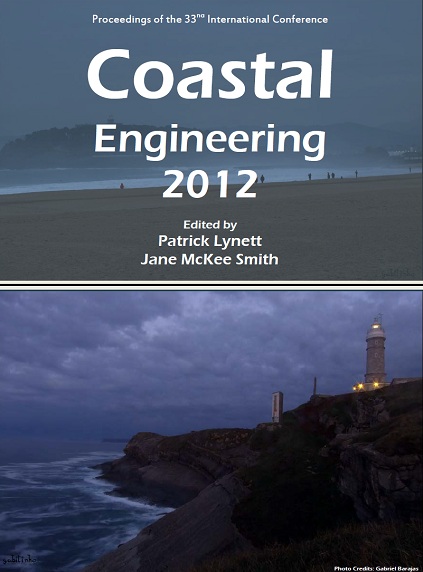Abstract
When calculating the Carbon Footprint for a product or service, a direct link is made between the total amount of consumed energy and the produced amount of carbon dioxide during production. For that reason calculating the carbon footprint of various alternatives is a very straightforward method to compare energy consumption and more importantly environmental pollution. Applying this method to large hydraulic engineering projects is not being done frequently. In this study the possibilities to apply the Carbon Footprint method to coastal protection systems have been explored and analyzed. The analyses are based on a case study: A reinforcement work at the Dutch coast.References
Bruce T.& Chick J. (2009) Energy and Carbon Costing of Breakwaters, University of Edinburgh Centre for Sustainability (C4S), Waste and Resources Action Programme WRAP (2006), The CO2 emissions estimator tool for the use of aggregates in construction, ISBN: 1-84405-268-0
Greenhouse Gas Protocol (2004), www.ghgprotocol.org, World Resources Institute and World Business Council for Sustainable Development, USA, ISBN 1-56973-568-9
Guidelines to Defra / DECC's GHG Conversion Factors for Company Reporting (2009), AEA for the department of Energy and Climate Change (DECC) and the department for Environment, Food and Rural affairs (Defra)
Hammond G. & Jones (2008), Inventory of Carbon & Energy (ICE) version 1.6a, Sustainable Energy Research Team (SERT), Department of Mechanical Engineering, University of Bath, UK
Hendriks Ch.F. (2001) Sustainable Constructions, Aeneas, Boxtel, ISBN 90-75365-45-8
Project Carbon Calculator PCC versie 2.0(2009), Koninklijke BAM Groep nv
Prorail (2009), De CO2 - Prestatieladder / Het certificeren, Prorail / AKI

